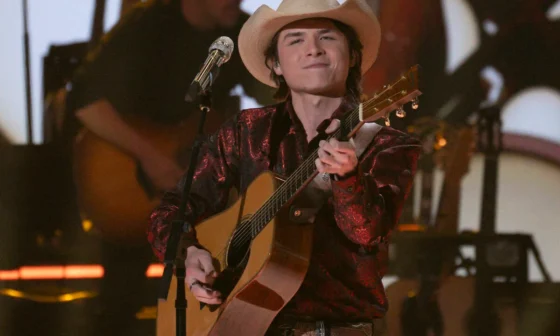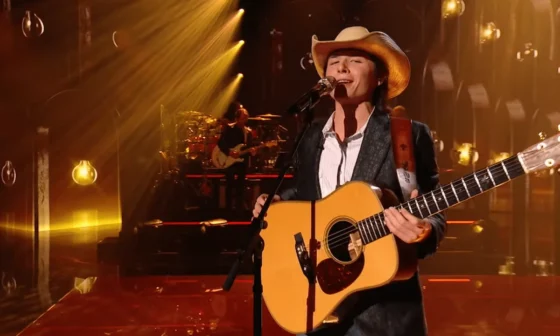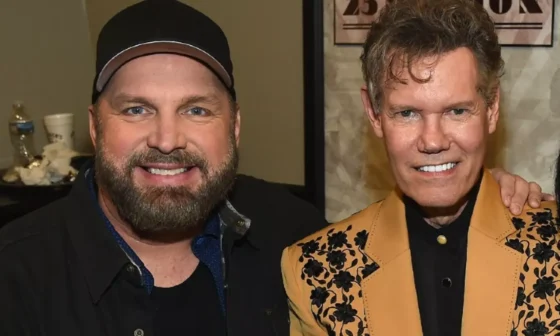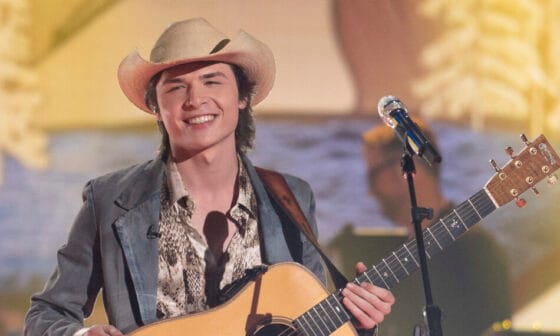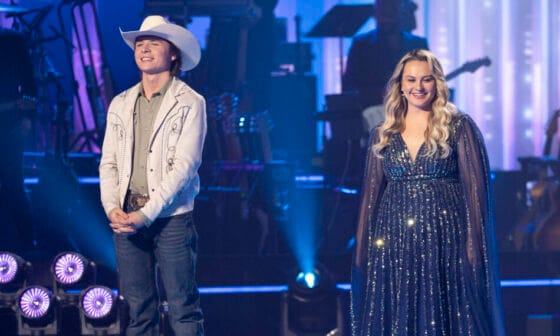On the night of July 4, the Guadalupe River didn’t just rise. It roared. It swallowed our home, our memories, and almost—almost—every person I love.
We had come to the river house between Ingram and Hunt to celebrate the Fourth. Seven of us. My sister Alissa, her husband Lance, and their two children—bright, fearless four-year-old Rosemary and her baby brother Clay, just 20 months old. My dad, Clint. My husband, Patrick. And me. That house on stilts, nestled beneath towering cypress trees, was supposed to be our haven. We’d eaten pizza, played hide-and-seek, read stories. We laughed. We loved.
Hours later, we’d be scattered across miles of rushing black water, clinging to trees, crying out for each other, praying we weren’t the only ones left alive.
It began around 3 a.m. with the sound of rain. I thought only of my morning run. By 4:30, Rosemary had climbed from her bunk and told Lance, “There’s something on the roof.” He got up, peered into the dark—and the water was already at the back deck, twenty feet above the ground. “We’re in trouble,” my dad said. “Big trouble.”
We tried to stay calm. Thought maybe we’d be stuck inside for hours, waiting for rescuers. I imagined yellow rafts arriving. I imagined telling the story later and laughing about the groceries we were lucky to have.
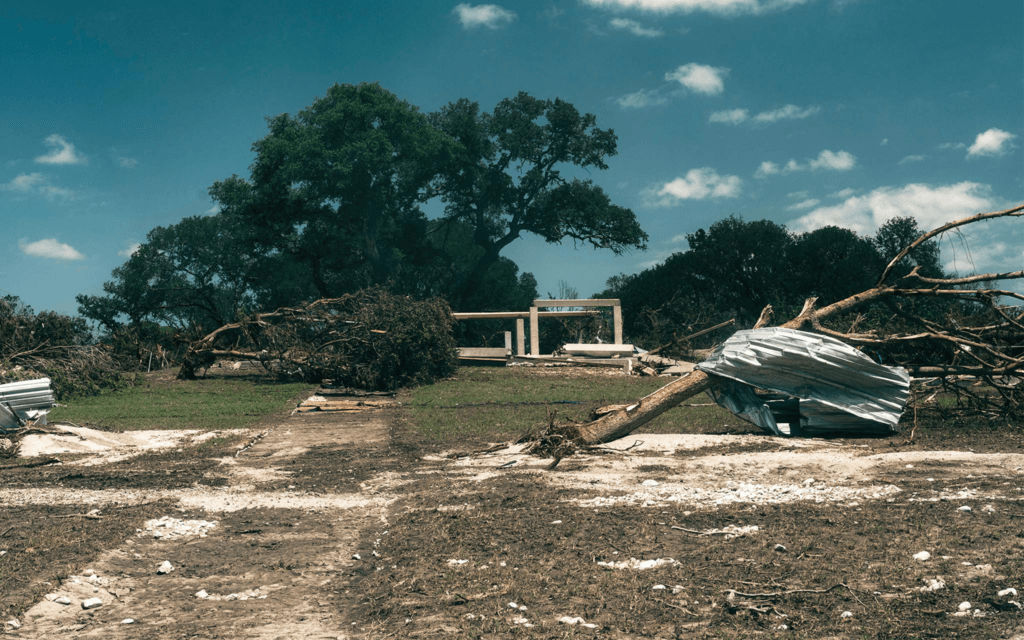
But the river didn’t wait.
The vinyl floor began to bubble. The carpet floated. Water breached the house. Glass shattered. The porch roof caved in. And the entire house began to groan and shift beneath us. Then, with a violent lurch, it broke free from its foundation.
Patrick whispered, “We’re moving.” I’ll never forget his voice—trembling, raw. We were no longer a family in a house. We were passengers in a coffin of splintering wood and breaking glass, adrift on a flood.
And then it collapsed.
In the chaos, my sister Alissa gripped her two children—one arm around each—perched atop the kitchen counter. We didn’t know what was coming. If we had, we would’ve run to help. Grabbed one of the kids. But no one had time. No one even had a second.
She remembers two sounds as they hit the water: Clay coughing. And Rosemary’s small voice saying, “Mama.”
The next moments tore us apart.
Lance was trapped under the sliding door, barely escaping. Patrick and my dad were pinned beneath debris, only freeing themselves by brute strength and instinct. I surfaced alone, confused, floating in a world of twisted metal, upturned trees, broken furniture—and silence. Until I heard Patrick calling my name.
We touched hands in the water. Then we lost each other again.
I grabbed at tree limbs that snapped in my grip. Fistfuls of leaves. Every second was war—between water and will. Eventually, I found a tree strong enough to hold me. I climbed. I prayed. Please stop raining. Please let the river fall. Please let someone else be alive.
And then, through the roar, I heard a scream.
“It’s Alissa! I’m with Rosemary. Clay is gone.”
I will never forget those words. Not in this life.
Dawn came slowly, the sky still heavy with storm. We clung to trees like shipwrecked survivors. Patrick and Lance found each other in a pecan tree, shouting, hoping, searching for signs of life. My dad had been swept nearly half a mile before dragging himself ashore. We were alive—but scattered and shaking and desperate to get to one another.
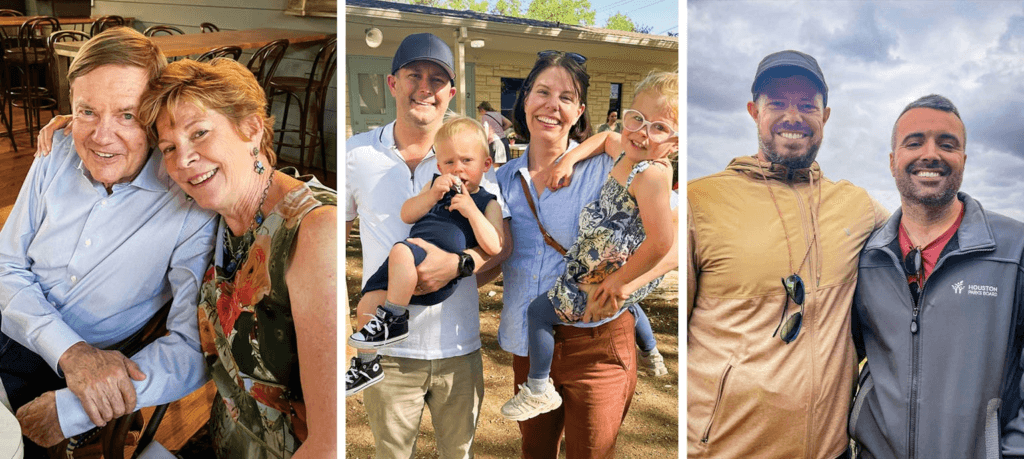
Patrick reached the bank and began running. When he found me in my tree, I wept. He was the first solid thing since the world had come unmoored. Then Lance appeared too. Somehow, the three of us were alive.
Now we had to save the others.
Alissa was still in her tree, Rosemary balanced on a high branch above her, blue-lipped, soaked, still and silent. Patrick found a kayak floating downriver. Neighbors brought an inner tube. Together, they rigged a rope and guided Lance into the current to catch his daughter. Alissa, barely holding on, pried Rosemary’s fingers from the branch. The little girl cried out in terror.
Then, her mother let go.
She fell twenty feet.
And landed perfectly in the tube, right in her father’s arms.
We cheered like people who had just seen a miracle. Because we had.
Alissa jumped next. I caught her. We stumbled to the bank together, crying, sobbing for the son she could no longer hold.
At a nearby home, the Marvins wrapped us in towels, gave us food, dry clothes, warmth. We were cut, bruised, broken in places. But we were standing.
Rosemary had not a single scratch.
Later that morning, we confirmed the unthinkable: Clay’s body had been found. He was still wearing the life vest his mother had fastened, with shaking hands, hours earlier. He was discovered near a movie theater, twelve miles downstream. Lance gently touched his chest, brushed back his blond hair, and whispered, “That’s my boy.”
And then, to Clay: “We’re so sorry. We love you. Your Mama loves you so much. She tried to save you.”
She did, Clay. She truly did.
Dear Rosemary,
In the ER, you sat patiently in an oversized T-shirt, eating Cheez-Its and counting the bruises on my arms. When I asked if you had any, you shook your head and pointed to an old scratch from falling off your bike weeks ago.
When I asked if you knew what happened, you said simply:
“The river house broke. We rushed in the river.”
You’re right. It did. And we did.
But what I want you to know—what I hope you carry in your heart forever—is how brave your mother was, how hard she fought for you. How your father and Uncle Patrick risked everything to bring you to shore. How we cried when we saw you safe. And how very, very loved you are.
Clay is gone. But you, sweet girl, are here. You are strong. And you are not alone.
That Fourth of July, you swam in the river. You climbed trees. You cannonballed into the deep end and soared on the rope swing while we cheered. And Clay giggled as your mom held him, pretending he could fly too. You laughed, played, read books, and hid under beds with your baby brother. He adored you.
That was the last full day we had with him. But it was beautiful. And it was full of joy.
And though the river took more than we can ever get back, it didn’t take everything.
It didn’t take our love.
And it didn’t take you.

